Description
The Old Man and the Sea is a “short novel,” but as the author himself points out, it could have been a book of more than a thousand pages. However, the story of the book is less than 100 pages. A simple and shaved work whose only subject matter is simply in front of the reader.
The story of this novel is about Santiago, a simple and poor old man who has not been able to catch fish for 84 days now. Manolin is also his student. A boy who is forced by his parents to work with other fishermen, but because his parents consider Santiago unlucky and miserable, they force him to go fishing with someone else.
However, Manolin does not think like his family. She loves the old man, and every time Santiago returns empty-handed from the sea, he visits her hut every night, feeds her, arranges her belongings, and talks to her. The old man-boy relationship is beyond what others can comprehend.
The Old Man and the Sea, originally titled The Old Man and the Sea, is an amazing, artistic, and beautiful work by the great American author Ernest Hemingway. This “short novel”, which the author considers the essence of all his life and art, opens a new concept of failure and success before your eyes. Hemingway also won the 1954 Nobel Prize in Literature. Describing his work and the reason for the award, the Nobel Prize writes: “For his mastery of the artistic narrative, which he recently showed in The Old Man and the Sea, and his influence on contemporary style.”
Ernest Hemingway had a tumultuous life. As a teenager, he wanted to be a writer, and he knew that you could not be a writer empty-handed, and that what you needed was a wealth of experience. So at the age of 16 he volunteered to go to the battlefield in World War I, but was refused a medical examination due to a boxing eye injury. However, he was able to go to Italy on behalf of the Red Cross as an ambulance driver.
The result of being on the front was that two bullets hit him in the leg and he limped back home. After a while, he leaves his father’s house, which is an American bourgeois environment, and works as a journalist. He gets married, travels to Europe, and is still experimenting. He wrote books and influenced great writers, and in 1961, at home, he was brainwashed with two shotgun bullets.
The opening sentences of the story of the old man and the sea are as follows:
There was an old man who only fished in a boat on Gulf Stream, and it had been eighty-four days since he had caught any fish. He had a boy with him for the first forty days. But when forty days had passed and they did not catch fish, the boy’s parents said that it was certain that the old man was Salao, which was the worst form of misfortune, and the boy went with them on another boat, which caught three good fish in the first week. The boy was upset, because he saw the old man coming back every day in an empty boat, and he was always going to pull the rope or the rope and the spear and the sail wrapped around the collar for the old man. The sail was patched with sacks of flour and, twisted, as if it were the flag of permanent defeat.
One night the old man finally tells the boy that he is sure that his bad luck is over and that is why he wants to take his boat the next day and go fishing in the distant waters. The old man believes that eighty-five digits is auspicious and that he can bring with him a fish that weighs a fortune. A boy named Manolin prepares his prey and fishing gear for the old man, and the next night, on the eighty-fifth day of Santiago, he launches his boat alone and begins his journey.
The old man knew from the time he boarded the boat that he would go away, and “left behind the stench of dry land, and paddled in the pure smell of the dawn sea.” When we are alone with the old man at sea, we become acquainted with the details of his character and thoughts. We find out that the old man is a professional fisherman and the other fishermen are ridiculed only because of his bad luck and nothing else.
A little later, the old man feels a gentle pull on his rope. He refused to rejoice or speak of success because he knew that “if one says something good, it may not happen,” but the old man had succeeded. A fish was stuck in his hook.
He felt a gentle pull and was happy, and then he felt something hard, the weight of which was unbelievable. It was the weight of a fish, and the old man gave it to Bahawu and untied the first of the two spare ropes. As the string ran lightly down and down the old man’s fingers, the old man felt the weight of the big fish, though the pressure of his thumb and finger was no more incomprehensible.
We soon realize that the fish caught by the old man is not an ordinary fish, but a giant fish, and the old man must use all his strength and experience to catch it. The wonder and beauty of the fish is so much that it fascinates the old man, but…
Ernest Hemingway’s style has a special feature and it is unparalleled simplicity. The unpretentious simplicity and sweetness that his prose brings with it draws the reader throughout the text, as William Faulkner puts it: “Hemingway never uses a word that the reader is forced to find its meaning in a dictionary.” With this style of writing, Hemingway wanted to document the human experience in the simplest and clearest language possible, and he has done well in The Old Man and the Sea.
“After winning the Nobel Prize in Literature in 1954, Hemingway told a Time magazine reporter:
I have tried to make a real old man, and a real boy, and a real sea, and a real fish and real bombs; But if I put them to work well, they can have any meaning. The hardest thing is to get something right, and sometimes more right than right.
The old man and the sea novel show the old man’s efforts and his invincibility until the last moment, and this amazing power of the old man comes from what he believes. They did not make man to fail. One may perish, but one does not fail. The fish is now not only the target, but also part of the old man’s existence. The glorious existence of nature that is now at odds with him, and it does not matter if the old man catches the fish or the fish kills him. The important issue is the principle of being killed.
In this novel, valuable concepts such as effort and steadfastness in the path of the goal and endurance and hope in achieving it are conveyed to the reader in a beautiful, extraordinary and, of course, very realistic way. Unlike many stories with happy endings, Ernest Hemingway in The Old Man and the Sea emphasizes realism rather than idealism.
But make no mistake, this story is very simple and has no secrets. So when studying it, do not look for symbolism or find something complex and just enjoy the depth of its beauty.
Enjoy the boy’s deep relationship with the old man, enjoy the professionalism and grandeur of the old man’s gaze even in dealing with his catch, and most importantly enjoy the companionship with the broken man who is now literally the hero. The old man fought until the last moment, so nothing could make him regret it.
Excerpts from The Old Man and the Sea
The old man was thin and dry and had deep grooves on the back of his neck. The brown spots on the cheeks were benign skin cancer caused by the reflection of the sun on the tropical sea. The spots covered both sides of his face, and there were deep lines on the palms of his hands from the string of heavy fish. But none of these lines were new. It was like the grooves of an ancient barren desert.
He knew that humility is not a disgrace and does not diminish a man’s great effort.
They went up the road together and reached the old man’s hut and went through the open door. The old man leaned against the wall with a twisted sail, leaving the box boy and other things beside him. The hut was almost as long as the hut. The hut was made of solid palm leaves, called guanos, and had a bed, a table, a chair, and a charcoal-burning hole in the ground. On the brown walls are the hard, dormant leaves of Guano, a colorful picture frame of Christ and one of Mary.
The old man said to himself that I measure the string, what is there does not help luck. But who knows? Maybe he ran and helped today. Every day is a new day. It is better for luck to help, but measure the card. Then, if luck helps, you are ready.
There are still two hours left until the sun sets, maybe by that time the fish has risen. If it does not come, it will rise with the moon. If it does not come again, it may rise in the sun. I have not slept anywhere, my strength is gone. He is the one who has the hook in his mouth. But with this attraction, it is one of those fish. His mouth must be tightly closed on the hook wire. I wish I could see him. I wish I had seen him once to know who I was with.
The rope rose slowly and steadily, and then the sea level in front of the boat swelled and fish appeared. The fish came out for a long time and the water fell from its sides. Its color was bright in the sun, and its head and pollen were purple-purple, and its back stripes were spread out in the sun, and it was light purple.
The old man said in his heart, “You are killing me.” But you are right. Brother, I have never seen anything bigger, more beautiful, calmer and more noble than you. Come kill me. Whoever kills whoever he kills.
They did not make man to fail. One may perish, but one does not fail.
He told himself that despair was stupid. After all, I think it’s a sin. Do not think of sin. Now you have enough trouble without sin.
“I wish I had a piece of stone to sharpen the knife,” he said after inspecting the knife strap on the paddle handle. “I had to bring a stone with me.” He told himself that you had to bring a lot of things with you. But you did not bring, old man. Now is not the time to see what you do not have. See what you can do with what you have.
About the Author: Ernest Hemingway
Ernest Hemingway is an American writer whose complex character, adventurous life, and sometimes bizarre behavior have always been of interest to him. He is known as one of the founders of one of the most influential literary genres, called “literary chronology”. Hemingway’s eloquence and dexterity in describing fictional characters was such that he was called the father of modern literature.
Ernest Hemingway was born in 1899 in Oak Park outside of Chicago. His father was a physician and his mother a piano and singing teacher and very religious. He was the second son of the family out of six children. According to him, his parents did not have a moral agreement and their children were very upset. His mother wanted his son to be a churchgoer and a religious singer, but his father was interested in fishing and took him to practice fishing. His father had died of gun depression due to depression, and Ernst always felt very ashamed of what his father had done. He was opposed to suicide. Not just as a Catholic; But because suicide violated the law of his courage.
Ernst was ten years old when he became acquainted with the gun and the principles of hunting, and his interest in literature became apparent from his early school years, and he began to write, publishing his first article in the school newspaper.
Ernest’s life span began in 1917 when he decided to enlist in the Army for World War I. But it was rejected due to poor eyesight. However, he was hired as a Red Cross ambulance driver. He was wounded by mortar fire during the war and was hospitalized for a long time; He fell in love with his nurse there, but returned to the United States a few months after the war ended and married another woman at the age of twenty-two.
However, he did not forget his first love and wrote the character of Catherine Barkley in the famous novel “Farewell to Arms”, which was the result of his experience in World War I, looking at the same nurse girl. In ten-page letters to Hemingway, Scott Fitzgerald advised Hemingway to end his book Farewell to Arms with this paragraph: The world breaks everyone, and then everyone becomes stronger than they were. But it kills those who do not fail. Very good people, very strong, very brave and fair; If you are not one of these, be sure it kills you too; But there will be no rush.
Hemingway answered in three words: Lose Gorto.
In 1921 (at the age of 22) Ernest married a girl named Hadley Richardson, who was also a journalist, and in 1922 they both went to war in Greece and Turkey, and in 1923 they had a son named John.
In 1926, he published his first novel based on his experiences in Spain, The Sun Rises.
Ernest Hemingway divorced his wife Hadley in 1927, and he said that despite many similarities, they had different perceptions of life, such as Ernest seeking sacrifice and his wife pursuing ambitious aspirations. After separating from Hadley, he vowed never to marry again, but he married a woman named Pauline in 1927 and they had two sons. Pauline was also a well-known writer, but Ernst was still unhappy with his life because he felt that writing did not cure the pain, but the fact was that the publication of books largely met his financial needs.
Ernest Hemingway contracted anthrax, malaria, skin cancer and pneumonia during his lifetime. He lived with diabetes, two plane crashes, a car accident, a crippled kidney, hepatitis, a crippled spleen, a broken skull and arm, a damaged spine and fragments in his body, and the only thing he could not resist was himself. One day after returning from the Mayo Clinic in 1961, he picked up his beloved double-barreled rifle and went back into space, making two holes in his head. Hemingway’s death was voluntary, but the newspapers called it “accidental.” Five years after his death, Marie, Ernest’s fourth wife, revealed that he had committed suicide. When asked why he had not mentioned the case before, he said it was because no one had asked about it before.
1- Introducing the book on YouTube
2- Introducing the book in Aparat





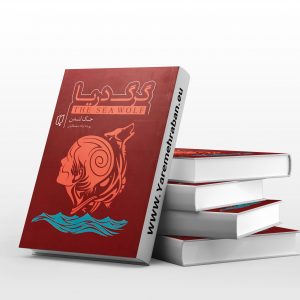
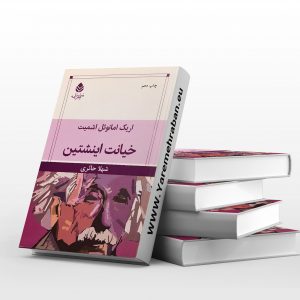
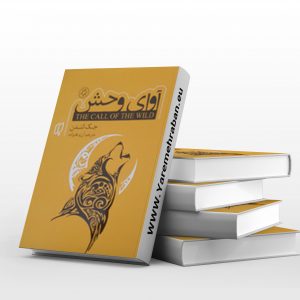
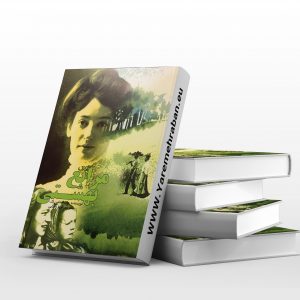
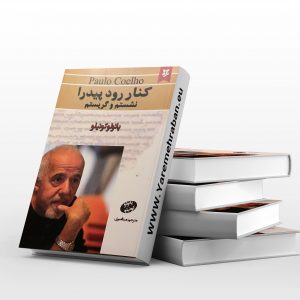


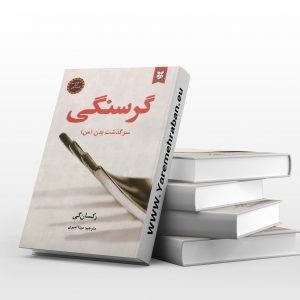

Reviews
There are no reviews yet.